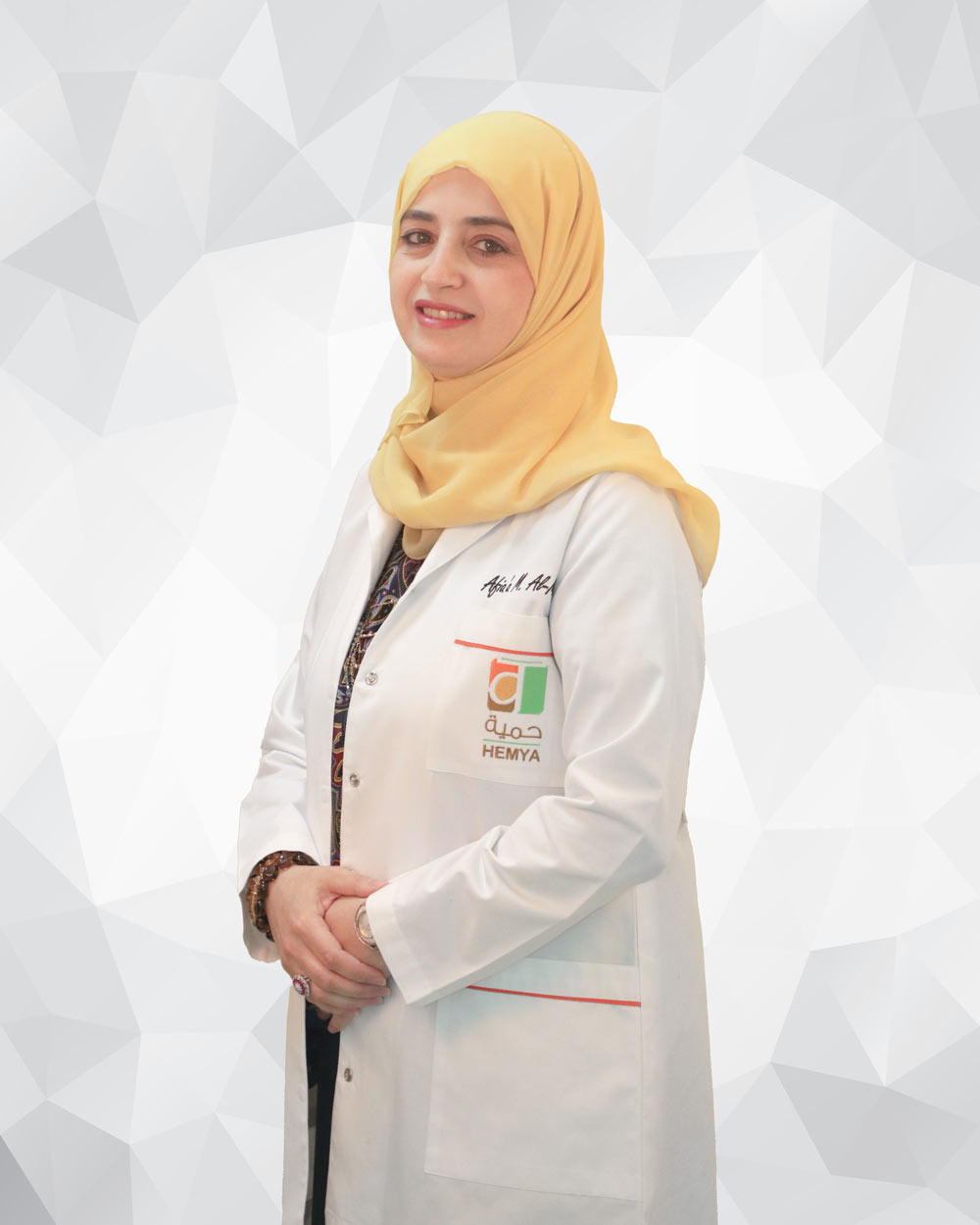“We have new method in designing a dietary program.”

Hemya Diet Center aims to break the prevailing stereotype about the concept of “diet” or “meal plan,” portraying them as potentially dull, repetitive, tasteless, resembling hospital food that is usually bland and without flavor. Chief Dietician, Hemya Center Manager Afiaa Al Masri talked about Hemya Center and its new approach.
What does the center offer that is new, and what sets you apart from others?
Through Hemya, nutritional consultation is provided by licensed and experienced Dietitians in all diseases and health problems related to food and nutrition. This consultation may include the development of a personalized diet plan in coordination with the guest or patient, which is then practically and immediately implemented through the Hemya website and mobile application. The Dietitian then creates an account for that guest and enters all necessary medical information such as weight, metabolism rate, health problems, and more. The dietitian then explains to the guest how to choose suitable dishes, distribute them among meals, and order them on a daily basis.
The diet menu changes weekly and includes a variety of delicious and flavorful options. Each item is detailed, including its ingredients, nutritional elements, and whether it contains allergens or not. It also explains the relationship between the item and the health problem it may help address, for example: low cholesterol, rich in fiber, rich in proteins, suitable for diabetes patients, and so on.This new method of designing a dietary program allows guests complete freedom to choose their favorite dishes and change them daily, unlike similar centers that offer a fixed menu for a month, requiring clients to pre-select their dishes for the entire subscription period.
What is the goal you seek to achieve?
Through the Diet Center, we aim to break the prevailing stereotype about the concept of “diet” or “meal plan,” portraying them as potentially dull, repetitive, tasteless, resembling hospital food that is usually bland and without flavor. We strive to make them easy to apply and adhere to for an extended period, economically feasible, and to avoid isolating individuals by allowing them to prepare their own meals who used to have to prepare or used to eat significantly in traditional way, hence avoiding feelings of isolation and depression that may hinder them from continuing their plan.

How are treatment plans prepared to combat obesity and related diseases?
Obesity and related diseases are considered lifestyle-related conditions, and since food is a fundamental element of lifestyle, when a guest visits “Hemya” Center, the following steps are taken:
- Analysis of body components using the “InBody” device, identifying indicators or data such as weight, body mass index, external and internal fat quantity and percentage, muscle mass, fluid quantity, mineral quantity, fat distribution in the body trunk and limbs, metabolic rate, waist-to-hip ratio, and other measurements.
- Gathering information from the guest regarding their current health status and medical history.
- Previous diet plans or programs followed by the guest and their impact.
- Physical activity, other practices such as smoking and sleep habits.
- Based on the above, the condition is evaluated, explained, and appropriate nutritional advice and guidance are provided, and a plan is built in direct coordination with the guest through the diet center’s website and electronic application, as previously explained.
- Daily follow-up with the guest and gradual provision of advice as needed.
- Weekly follow-up and updating the guest’s information.
- Providing suitable advice for weight maintenance upon reaching the desired goal after completing the program.














